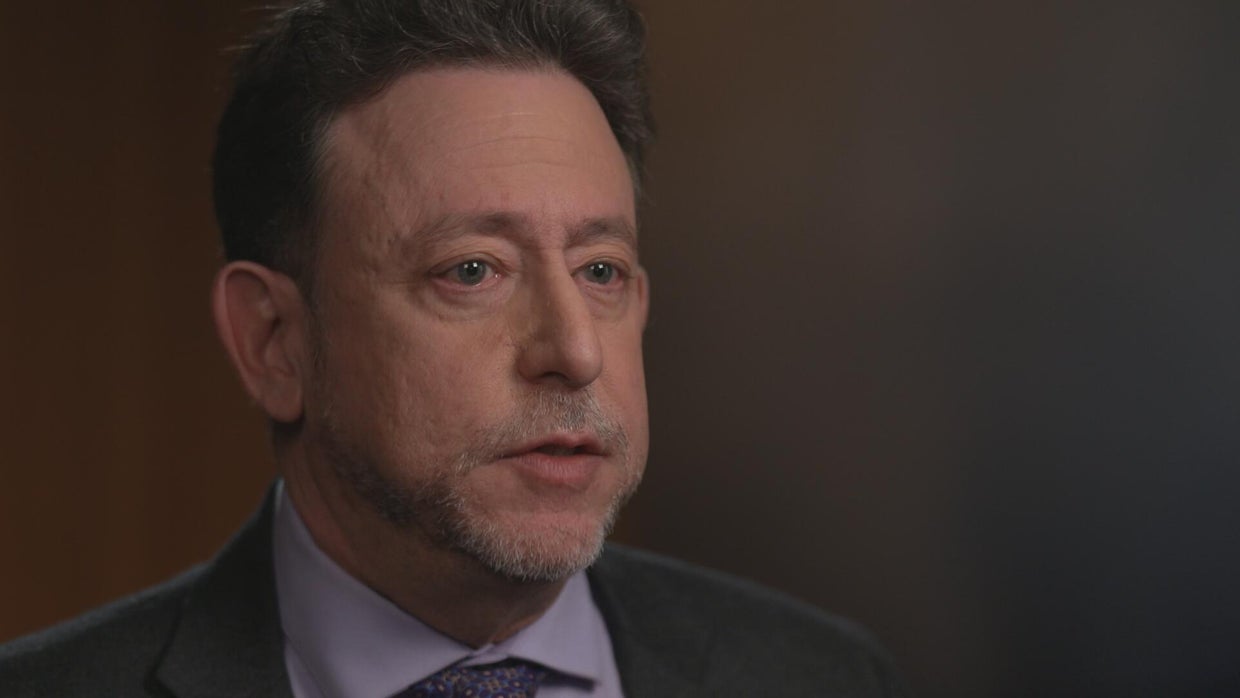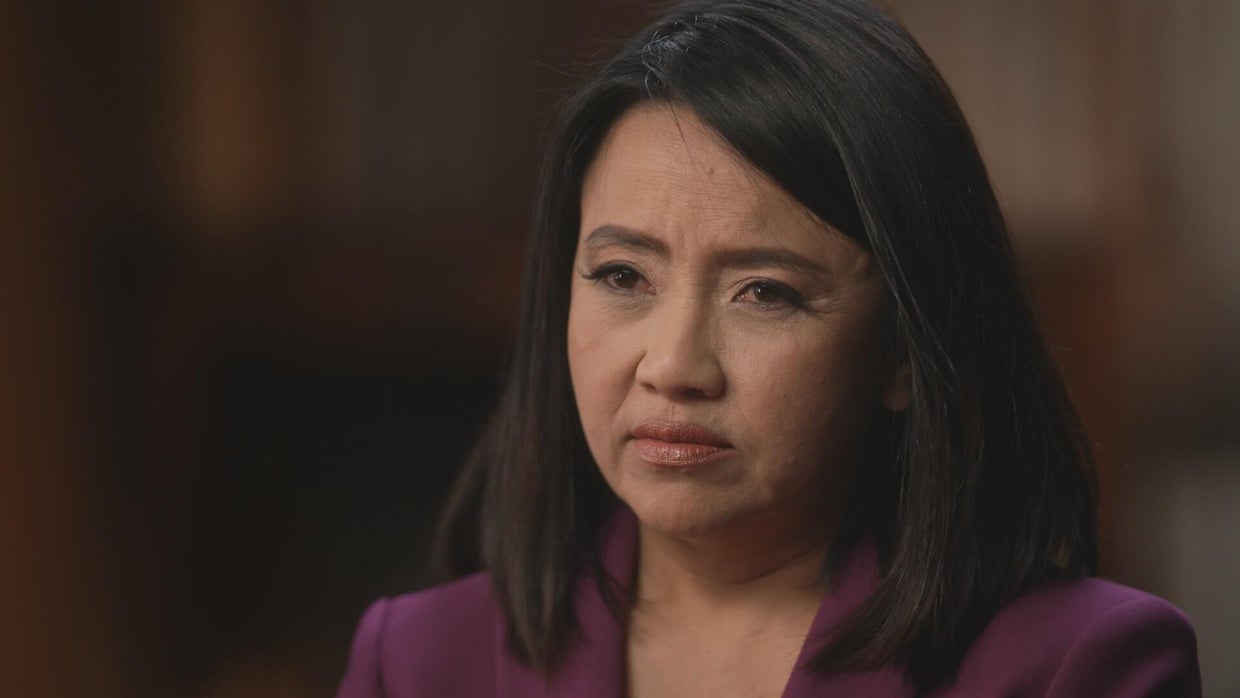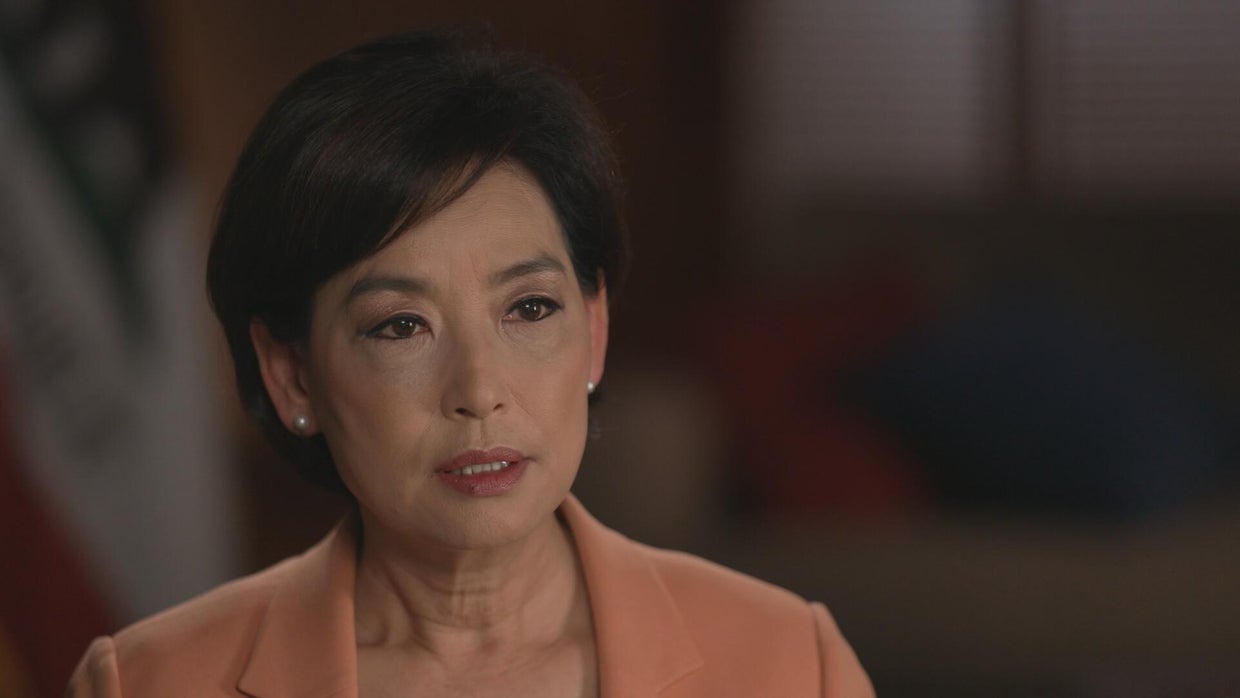Voice of America journalists speak out after Trump administration shuts down network

Tonight, the Voice of America is silent. The storied broadcaster was launched in 1942 to counter Nazi propaganda, but two weeks ago president Donald Trump usurped Congress’ authority and signed an executive order effectively shutting down the taxpayer funded broadcaster for what the White House calls “radical propaganda.” Friday, a federal judge put any further actions by the administration on hold. Over the decades VOA has projected American values globally, and for hundreds of millions it was the place to find fact-based news about America and the world in their own languages. It all came crashing down in a single day.
Steve Herman: When I heard that 1,300 of my colleagues had been suspended immediately with pay in an email saying that they couldn’t do any more work, couldn’t go into the building, I knew at that point the Voice of America was gonna die very quickly.
Steve Herman is chief national correspondent for Voice of America and perhaps its best-known journalist. Americans may not recognize him since VOA is prohibited by law from broadcasting in the United States.
Steve Herman: People say, “Oh, international broadcasting, it’s archaic, it’s obsolete.” Why are the Chinese spending so much money and, and broadcasting in dozens of languages over radio and setting up all these TV services? You know, are they wasting their money? I don’t think so. VOA is probably the best bang for our buck that we have in terms of public diplomacy.
After joining VOA in 2002 as a Tokyo-based foreign correspondent, Herman spent the next 15 years covering the globe for America’s flagship international broadcaster before landing at the White House in 2017. He told us he decided to take the job as a federal employee because of VOA’s charter, which requires accurate, objective reporting and sets a firewall to protect the editorial independence of its reporters from political meddling.
60 Minutes
Steve Herman: I’ve met people, even in North Korea, who have said, when they first started listening to it and they heard it’s from the United States, that it must be propaganda. Because that’s what their broadcasters do. And then they heard us talking about America, warts and all. And they also heard us reporting about their own country, and telling them things that they could verify with their own eyes, that their own media wasn’t telling them. And a light bulb goes off when they realize what it is like with the media in the United States. That you can criticize your own government, have opposition politicians on the air. That doesn’t happen everywhere in the world.
Patsy Widakuswara: Our mandate was never to present the administration’s story. Our mandate was always to present America’s story.
Patsy Widakuswara is VOA’s White House bureau chief. A native of Indonesia, she started working for VOA in its Indonesian service in 2003. Growing up under the dictatorship of President Suharto, she understands the value of VOA.
Bill Whitaker: What’s the size of the audience?
Patsy Widakuswara: All around the world, it is 360 million weekly unduplicated.
Bill Whitaker: Listening and watching VOA?
Patsy Widakuswara: Multi-platform television, radio, digital, social media.
And 86% of its worldwide audience tell pollsters they find VOA trustworthy. Two weeks ago, those millions of viewers and listeners were getting daily news in 49 languages.
Turn on VOA today, you get this… on a loop.
Steve Herman: Bill, you and I have both been in a lotta countries. And if you’re in a country and all of a sudden television or radio switches from regular programming to music, you know something’s up.
Bill Whitaker: So what do you think that says to your listeners and viewers?
Steve Herman: I think it would make them wonder, “What the hell is going on in the United States?
The Voice of America spoke its first words during World War II, beaming German language broadcasts into Nazi Germany to counter Hitler’s propaganda machine. During the Cold War it expanded in Eastern Europe, the Soviet Union and China to challenge communist disinformation with straight-forward reporting on American life and politics – our highs and lows, an approach President John F. Kennedy praised at VOA’s 20th anniversary.
President John F. Kennedy: We compete with other means of communication, of those who are our adversaries who tell only the good stories. But the things that go bad in America, you must tell that also.
With bipartisan support, VOA grew to spread American news and values across the globe.
President Ronald Reagan: My fellow Americans and fellow citizens of the world, this is Ronald Reagan, President of the United States, speaking to you live from the broadcast studios of the Voice of America in Washington, D.C.
VOA told the Chinese people about the military crackdown on pro-democracy demonstrators in Tiananmen Square and the deadly COVID outbreak in Wuhan when their own government wouldn’t. It beamed reports into Iran about the democracy protests in 2009, it told the people of North Korea about their government’s gulags and Russians about atrocities in Ukraine. VOA has been supported by every president since 1942 – Republican and Democrat … all but one.
President Trump: If you heard what’s coming out of the Voice of America, it’s disgusting. What things they say are disgusting toward our country.
That was President Trump in 2020. He complained VOA’s coverage of the COVID epidemic parroted Chinese propaganda. Two weeks ago, the White House released a statement called “The Voice of Radical America” listing a dozen specific grievances, like VOA reports on white privilege, transgender migrants and Hunter Biden’s laptop.
Kari Lake: They’ve got national security risks inside this agency. The rot is so bad it’s like having a rotten fish and trying to find the little portion you can eat. It’s, it’s unsalvageable right now.
In February, President Trump installed Kari Lake of Arizona, a former TV anchor who lost two statewide political races, as senior advisor at the Agency for Global Media, the entity that oversees VOA and its sister services covering Europe, Asia, the Middle East and Cuba. She says they’ve grown too large.
Kari Lake: We are going to be slimming this agency down, way down, it’s going on a Ozempic diet.
VOA’s budget is $267 million a year. Lake is now moving to implement President Trump’s executive order to eliminate the broadcaster to the “maximum extent consistent with applicable law.”
We asked Lake for an interview to discuss her findings and plans for VOA. She declined, responding: “I won’t do an interview with a disreputable news outlet like 60 Minutes.”
The president has a well-known animus toward the press, but he seems to hold special disdain for Voice of America. Under his administrations, Steve Herman has been investigated twice for his copious social media posts, including this link to a critic of the dismantling of USAID, which one senior administration official suggested was treasonous.
Bill Whitaker: What do you say to people who would say that your Twitter activity, your social media activity, as foreign service officer, technically part of the government, that perhaps you shouldn’t be criticizing the president?
Steve Herman: I wasn’t criticizing the president. I wasn’t criticizing his policies. I was quoting people who didn’t like those policies. But I also put out what the president says, verbatim. I put out links to the president’s executive orders. Does that mean that I’m supporting or praising those statements or policies? No. And I think any reasonable observer understands that.
On the 12th of this month, Patsy Widakuswara – working her White House beat – asked the prime minister of Ireland a question President Trump found impertinent.
60 Minutes
Patsy Widakuswara: What about the president’s plan to expel Palestinians out of Gaza? Are you discussing that with him and giving him your position?
President Trump: Nobody’s expelling any Palestinians. I don’t know… Who are you with?
Patsy Widakuswara: I’m with Voice of America, sir.
President Trump: Oh, no wonder. Voice of America.
Bill Whitaker: So when the President turns around and says, “Who are you with,” what’d you think?
Patsy Widakuswara: Honestly, my heart sank a little bit.
Two days later the president signed that executive order all but eliminating VOA. In following days, Kari Lake suspended hundreds of journalists, banned them from the building, and halted transmissions overseas. For the first time in 83 years, the Voice of America was silenced.
Bill Whitaker: You think your question had anything to do with that?
Patsy Widakuswara: I think it’s impossible for me to know the answer to that question. This is happening to all federal agencies. Honestly, when I was at the Oval Office, it was– it was just my reporter’s instinct and I wasn’t thinking about anything else. It was just…
Bill Whitaker: Just doing your job.
Patsy Widakuswara: Two world leaders in front of me. What am I going to do if not ask the questions?
Steve Herman questions whether the president’s executive action is legal.
Steve Herman: There are those who want to make the Voice of America the voice of the president. Now, that’s not up to the executive branch of government. That’s up to the Congress. We’re following the laws that Congress passed.
Republican Congresswoman Young Kim of California is a South Korean immigrant, a Trump supporter, and a longtime champion of Voice of America and Radio Free Asia.
60 Minutes
Rep. Young Kim: I encourage President Trump to reconsider his executive order.
Kim is one of the only Republican members of Congress to challenge the administration on VOA.
Rep. Young Kim: When we are in an information war and we stop broadcasting into those repressive governments and into repressive societies, they’re gonna, they are not gonna hear the truth. Why are we ceding our soft power that helps us to stay as a free world leader. We’re just playing right into Xi Jinping’s hands.
Bill Whitaker: Since President Trump’s executive order, media in China and Russia have been celebrating.
Rep. Young Kim: Oh yeah. [laughs] I’m not surprised.
Bill Whitaker: Does that concern you?
Rep. Young Kim: That concerns me because we’re losing that information war.
Bill Whitaker: So we pulled back. Who fills the void?
Rep. Young Kim: China. Ayatollahs. Kim Jong Uns. Dictators. And we’re not there to counter that disinformation.
Patsy Widakuswara is lead plaintiff in a lawsuit seeking to resuscitate VOA, but she fears the damage has already been done.
Patsy Widakuswara: If they bring back everybody next week, what kind of newsroom would that be? How can we continue to report without fear or favor with this hanging over us? Would we only have to report on things that pleases the President? It’s not something that I signed up for.
Produced by Jack Weingart and Graham Messick. Broadcast associate, Mariah Johnson. Edited by Matthew Lev.





